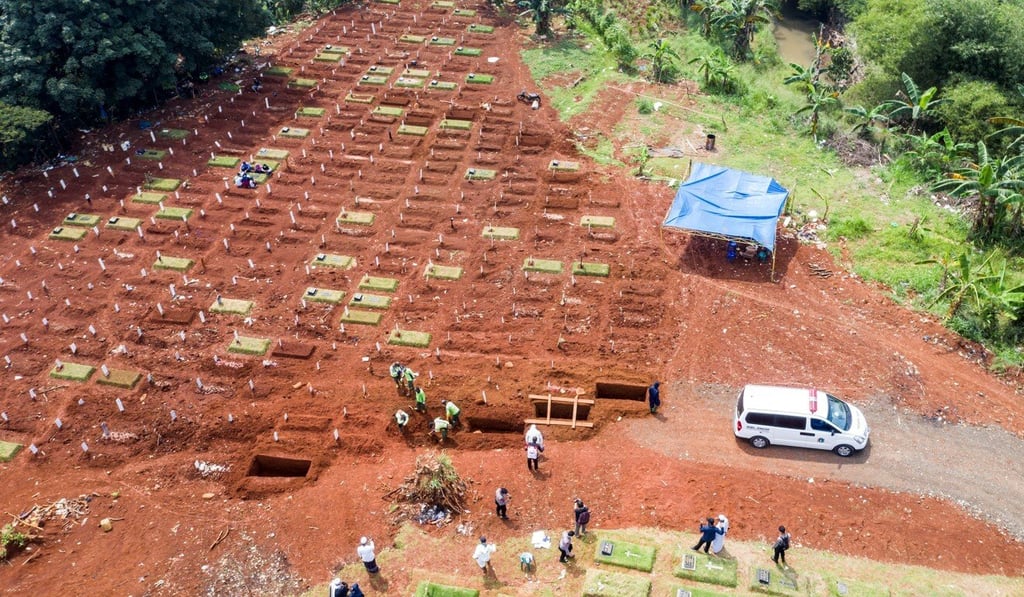In Indonesia, villagers are blocking burials of coronavirus victims, fearing contamination
- Indonesia has Asia’s highest Covid-19 death toll outside mainland China, and farmers are donating land as families find it difficult to bury their loved ones
- Protests have been held to block burials, with fake news, ignorance, vocal individuals and a lack of proper government communication blamed

The farmer felt compelled to provide his land for free after reading reports of families of coronavirus victims who were unable to lay their loved ones to rest as they were blocked by community members fearful that the bodies would spread the virus.
“I feel very sorry … there are many residents who fell victim to coronavirus whose burials were rejected by residents,” said farmer Badaruddin in a video that went viral.

“Therefore I … offer this small plot of land of around 2,500 metres to victims of coronavirus who are rejected by their own people, to bury them here for free,” said Badaruddin, adding that he was doing so as a form of respect and a sense of responsibility towards humankind.
Badaruddin was among at least three people who had offered their land for burials, according to Central Java Governor Ganjar Pranowo.
“They are good people with a deep sense of humanity,” said Ganjar.